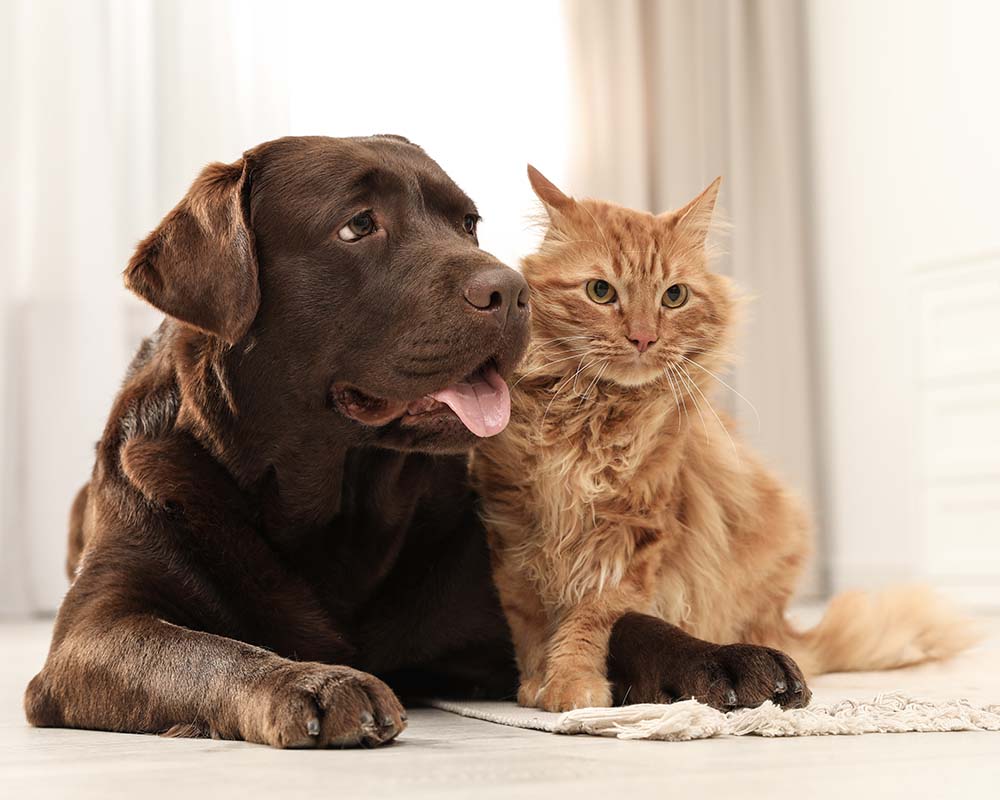Rescue Foster Information
& Forms
Below is information for those fostering animals through our partner rescue animal groups. Click on each link for detailed information.
Specific Discharge Instructions
Home Care – Your Responsibility
Drop-off Instructions:
Drop-off starts at 7:30 AM and ends at 8:00 AM. Please do not feed the dog or cat their breakfast the morning of the surgery unless they are under four months of age. If someone else is dropping off on your behalf, please make sure they have information about:
- Any medications the pet is currently taking
- Any medical concerns
- Time the pet last ate
Please plan on patient pick-up between 3:00-5:00 p.m. that same afternoon. We ask that all patients be picked up by 5:00 p.m. unless they stay overnight for heartworm treatment.
If the pet is being dropped off for heartworm treatment, please bring two meals of their regular food and any medications.
Post Operative Discharge Instructions:
We provide written discharge information for all procedures. For specific procedures, please see below.
Please follow these guidelines so your rescue foster can have the best recovery possible. Their recovery is your responsibility!
- Animals may be groggy on the first night after an anesthetic procedure. You may offer him/her half of their normal dinner tonight and resume a normal feeding schedule tomorrow morning.
- If the patient is a puppy/kitten, offer him/her their normal feeding tonight.
- Have water readily available.
Activity Restriction:
- Dogs may be taken on short, leashed walks to go to the bathroom (NO running, roughhousing, jumping, off-leash play, etc.), and they should be confined to a crate or small room when you are not home. Separating housemates who tend to play actively will be beneficial. Minimal activity should be allowed for two weeks post-surgery.
- Cats should be confined to one room, with minimal activity for two weeks post-surgery.
- No baths or swimming for two weeks.
Incision Care:
Most pets will leave the incision alone, but if they lick at it, they must wear an e-collar (these can be purchased from a vet or pet store).
**IF the pet is not confined or is allowed to lick or chew the incision open, there will be a charge for repair of the incision if needed. **
- Do not clean the incision or apply any ointments unless directed.
- Look at the incision at least once daily to monitor for swelling, redness, or discharge.
- If your animal was sent home with pain medication, start this tomorrow morning with a meal as directed on the label.
If you notice vomiting, diarrhea, lethargy, inappetence, or complications with the incision site, contact us at (919) 249-6601 during business hours, your rescue coordinator, or VSH at (919) 233-4911 after hours.
Post Dental
Each pet recovers from anesthesia at a different rate. Some animals return to normal within 24 hours, while others may take a few days to resume normal activity. Having a small amount of blood-tinged saliva for the next 24-48 hours is also normal. Please call if you feel this is excessive or if you notice he/she is acting unusual in any way, such as being lethargic, painful, not eating, or having vomiting and/or diarrhea.
Upon returning home, give at least an hour before offering food or water. It is not unusual for some pets not to eat the night of anesthesia or not to have a bowel movement for 24-48 hours.
Since your pet had oral surgery today, it is extremely important that you feed soft or moistened food for the next two weeks in order not to cause pain and disruption of the sutures. You can either feed canned food or use warm water to soak your pet’s regular dry kibble into a gruel consistency. Do not allow any chewing or playing with toys during this time. It is also important for you to monitor your pet’s mouth daily for swelling, redness, excessive bleeding, foul odor, pain, dark color around the surgery area, or an open tooth socket or disruption of the gum tissue. If any of these or other problems arise, call us immediately.
If your pet was sent home with medication(s), start these the morning after with a meal as directed on the label.
Contact us at (919) 249-6601 during business hours, or your rescue coordinator or VSH at (919) 233-4911 after hours if you notice vomiting, diarrhea, lethargy, inappetence, or complications once home.
We offer a courtesy recheck two weeks after the procedure to ensure appropriate healing.
Heartworm Treatment
Upon discharge, we prescribe Prednisone and Gabapentin for your dog to reduce side effects. Trazadone may be dispensed as needed to keep your pet calm and restrict activity/excitement.
Final Assessment of Heartworm Treatment Efficacy
Your veterinarian will test your dog’s blood to assess the success of heartworm adulticide six months after treatment. The goal is to eliminate all stages of heartworms from your dog.
Home Care – Your Responsibility
Throughout the recovery period, please watch your pet for coughing, gagging, vomiting, diarrhea, or loss of appetite. Excessive sluggishness, respiratory distress, and coughing up blood are signs of a serious problem that requires immediate veterinary attention. The most important thing you can do to minimize complications during treatment is to restrict your pet’s exercise before, during, and after the Melarsomine injections.
Because exercise increases blood flow to the lungs, it increases the likelihood that dead worms will block blood flow. This can result in severe complications and possibly death.
Restricted Activity:
- Short, leashed walks only to use the bathroom
- No running/free roaming
- No roughhousing
- No jumping
- They should be confined to a crate or small room when you are not home
- It will be beneficial to separate housemates if they tend to actively play
The importance of restricting your dog’s activity and continuing heartworm prevention cannot be overemphasized!

